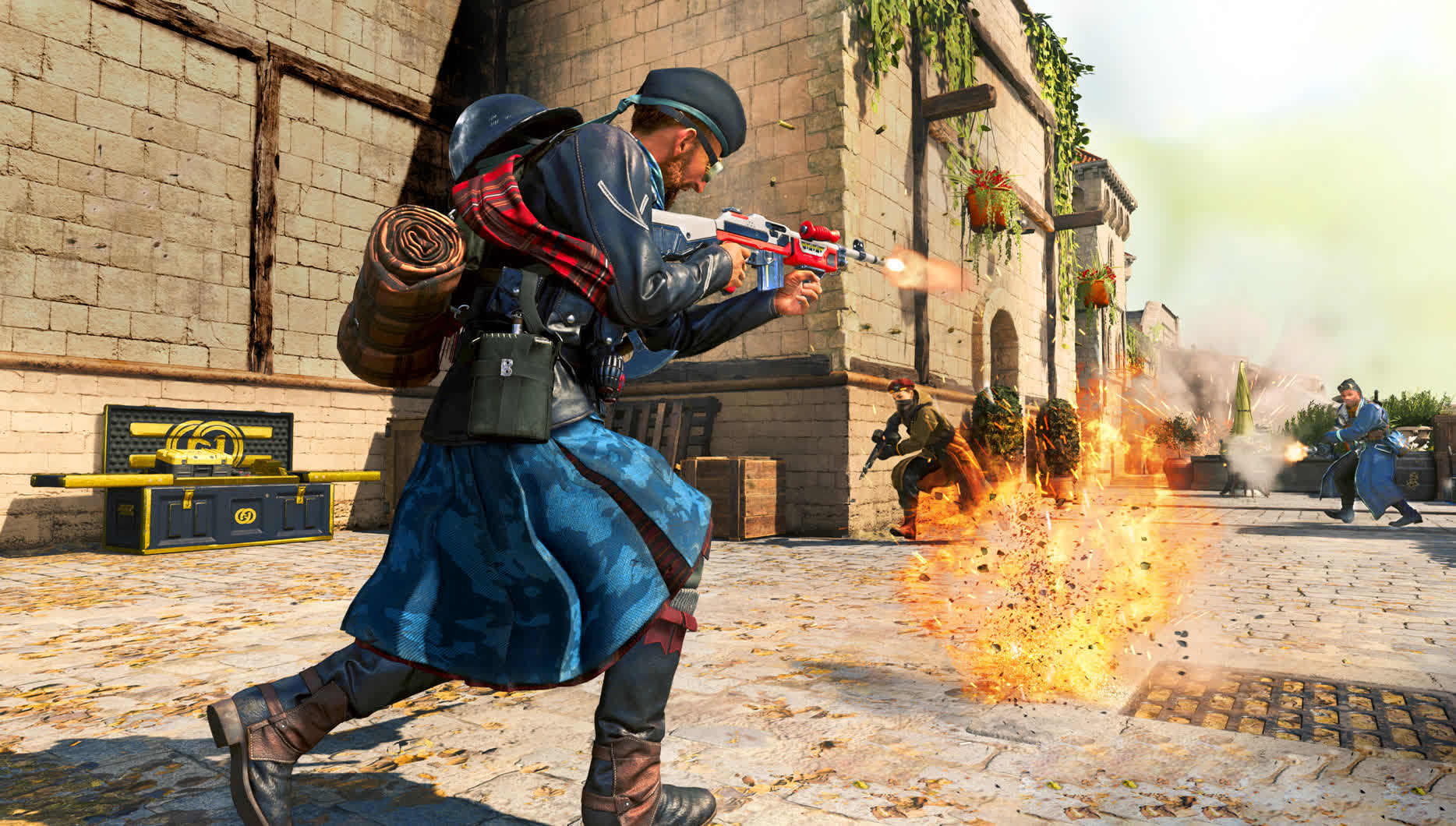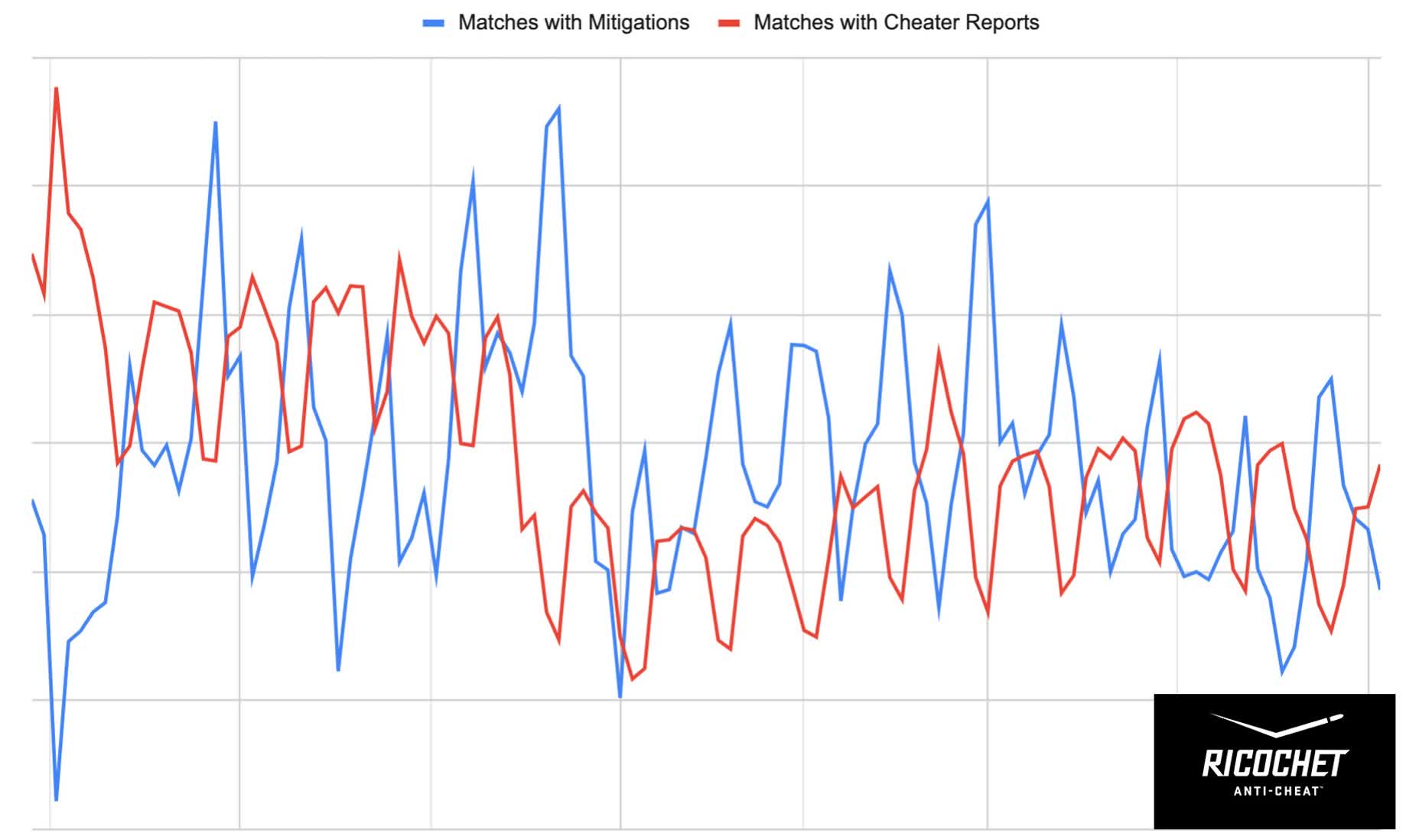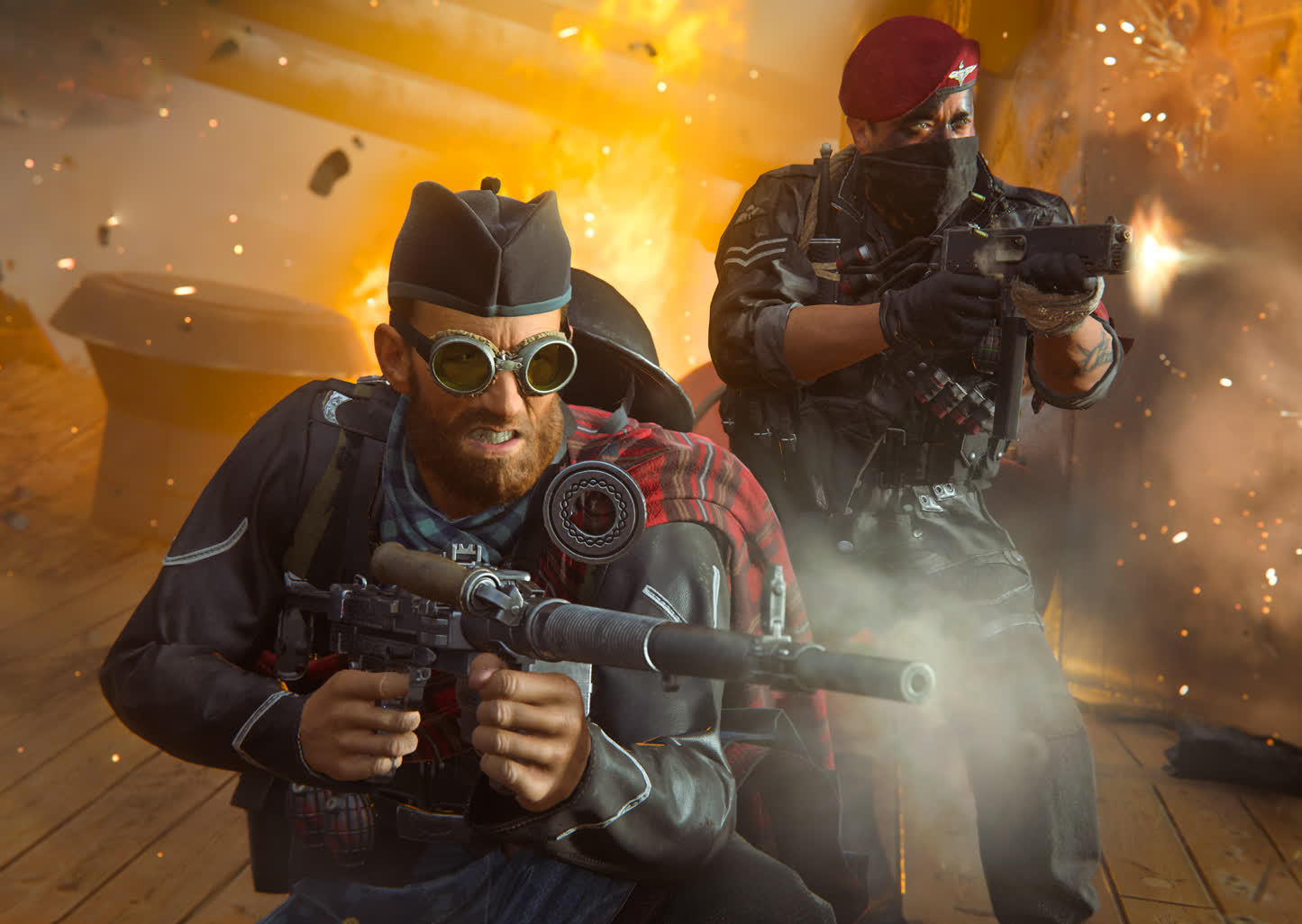The big picture: Call of Duty is one of the most popular franchises in gaming. Unfortunately, it's also a magnet for cheaters looking for an unfair advantage against their peers. The relationship between cheat makers and a game's developer largely mirrors what we see in the greater software security industry between bad actors that write nefarious code and anti-virus solutions providers.
In short, devs are constantly coming up with new ways to detect and block those who don't play by the rules; the cheaters respond with new tactics to gain the upper hand. Rinse and repeat.
Call of Duty's anti-cheat team - Ricochet - employs a variety of mitigations against cheaters. These are usually designed to keep cheaters in the game for longer so they can better analyze their tactics and strengths while simultaneously making their presence less impactful to legitimate players. It also no doubt frustrates cheaters.

One popular example is the damage shield. If you are being shot and notice your health is only slowly tricking down, you are likely playing against an identified cheater who has had their weapons severely nerfed. The hope is that the legitimate player is able to identify and dispatch the cheater with ease, and also to publicly shame the cheater.
Another mitigation tactic is called cloaking. When a cheater is hit with cloaking, their bullets cause their opponents to disappear. Suddenly, the enemy is invisible and they are left wondering what just happened. Again, this makes it much easier for the legitimate player to "take care of business themselves."
The team's latest mitigation is called disarm. As the name suggests, cheaters hit with this tool will have their weapons taken away. They won't even be able to use a melee attack. The team equates it to putting the cheater in time out.

The mitigations appear to be having an impact on matches with cheaters reported but as you can see, there's still an ebb and flow with spikes and dips as cheaters thwart methods and devs respond, respectively.
Team Ricochet said additional mitigations are active, and that some new ones are also in development.
It's also worth noting that these mitigations are in addition to their biggest deterrent to cheating: bans. Since its last update on April 26, the team has issued another 180,000+ bans across Vanguard and Warzone combined.
Ricochet shared helpful links to support pages outlining how to submit in-game cheater reports for Vanguard and Warzone. Furthermore, they recommend turning on two-factor authentication to protect your account from those that have been banned and are looking to sneak back into the game with a fresh ID.
Looking ahead, the team said its anti-cheat tech will be active on day one for both Call of Duty: Modern Warfare II and Warzone 2.0. MW II is scheduled to arrive on October 28, 2022, with Warzone 2.0 to follow shortly after.
